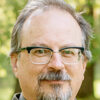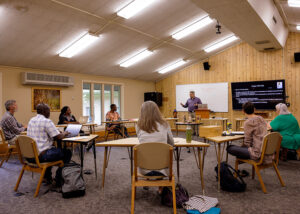When we as a church agree to help those in need and place our trust in God, we should anticipate unexpected consequences. As we serve, we might make new friends, learn a new skill or enrich our spiritual lives.
God has unexpectedly blessed us by arranging us into congregations, area churches, a national church, schools, and organizations like Mennonite Central Committee and Abundance, among others, so that we can more effectively and efficiently use our resources to follow Jesus.
In one of the early iterations of Mennonite conferences in eastern Canada, records state, “In 1847, the conference authorized the holding of prayer meetings with the caution that the spirit of love and good-will be evident.” In 1903, Mennonites in western Canada formed the Conference of Mennonites in Canada, whose founding statement reads, “The union it promotes does not consist in agreeable forms and customs, but in unity of love, faith and hope, and in connection with this a common work in the kingdom of God.”
In other words, we banded together to see the best in each other and to do good together. We pooled our resources to help others and strove toward shared goals despite some different convictions and certainties among us.
Have we lost sight of our historic aspirations? Are we poised to repeat the mistakes of our past?
In recent times, we have not all agreed on matters related to sexuality. We don’t all understand the conflict in Palestine and Israel in the same way. In the past, we didn’t agree on other matters, such as divorce and remarriage.
Just as there are unexpected consequences of agreeing, there are unexpected consequences of disagreeing, especially when our certainties push us apart.
In his book The Sin of Certainty, author and theologian Peter Enns explains how Christians mistake “certainty” and “correct belief” for faith. What God really desires, he says, is our trust. Enns contends that an acceptance of mystery and paradox helps us become more mature disciples of Jesus who truly trust God.
Our disagreements break trust in each other and in God. They damage relationships. When disagreement means we stop entrusting our donations to organizations we formed, or even worse, we stop praying for them, we also hurt those to whom we have made commitments. We inadvertently withdraw support for those who most hunger for Jesus and hope beyond what the world offers.
Is agreement on all matters of faith essential to the good work we do together? Are our certainties blinding us? Might trust in God surprise and bless the church in new and unexpected ways? What do you think?
Dan Dyck is director of church engagement-communications at MC Canada.







Leave a Reply
You must be logged in to post a comment.